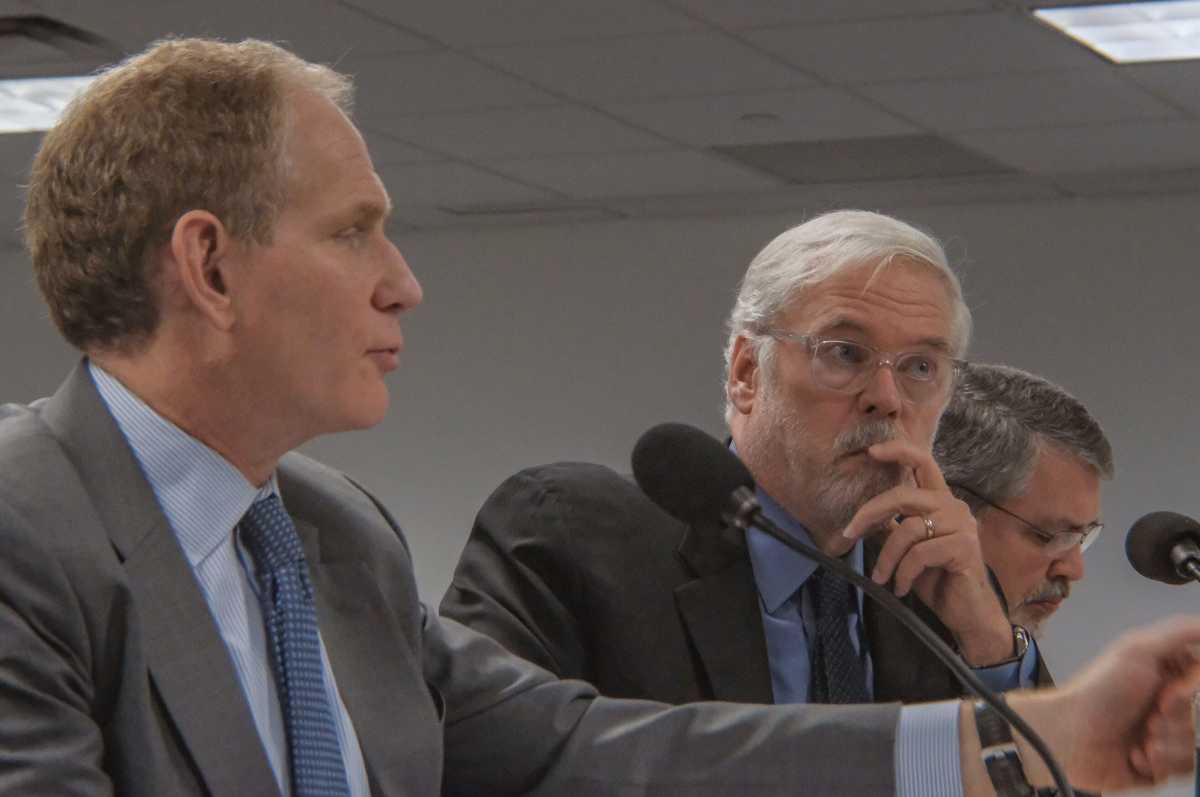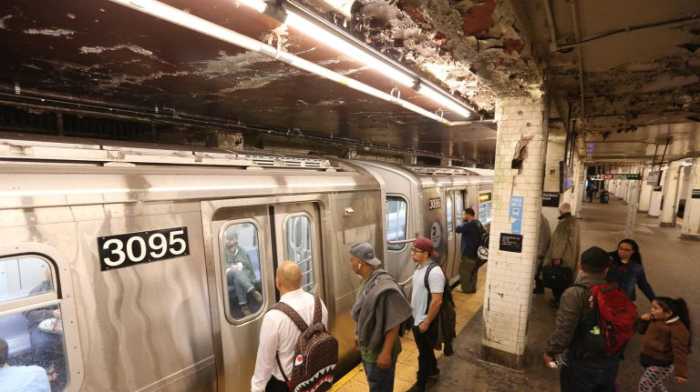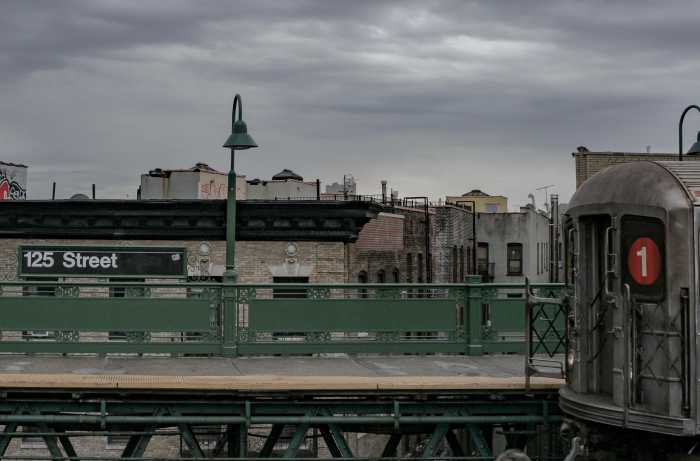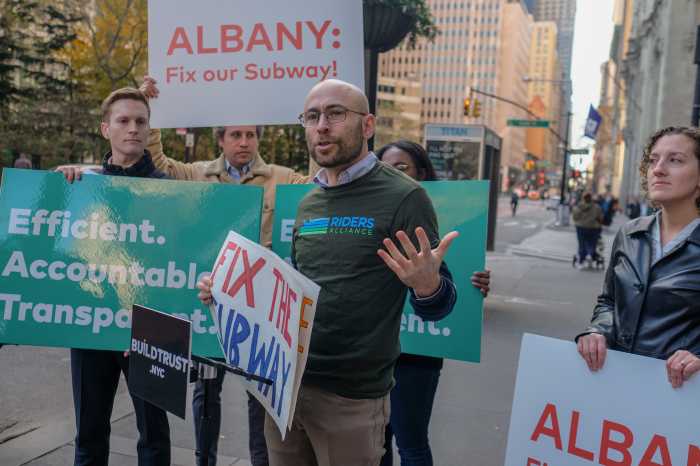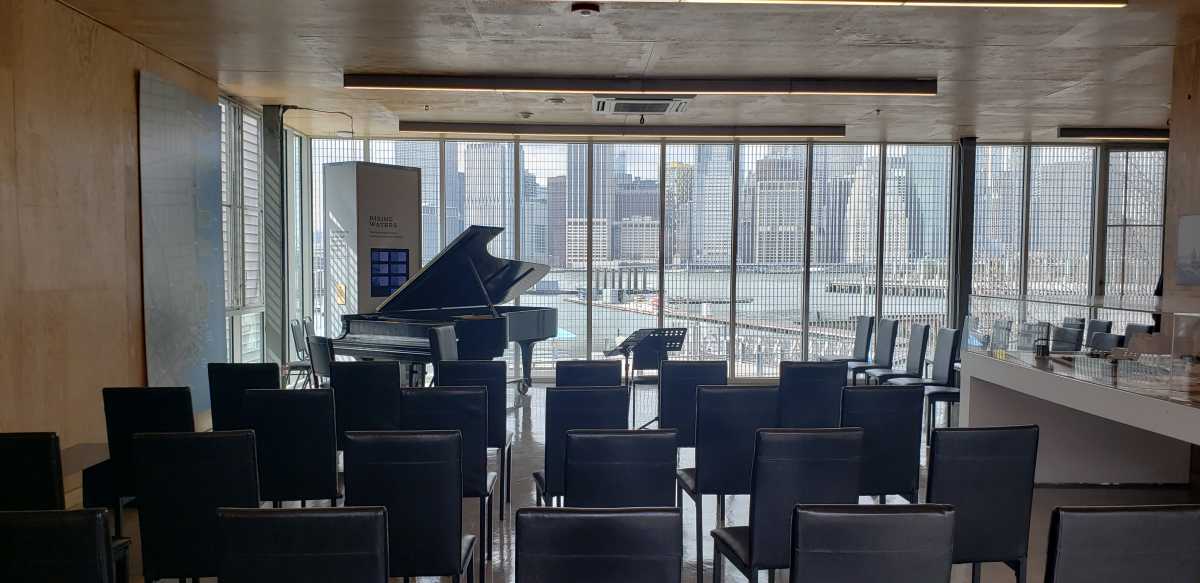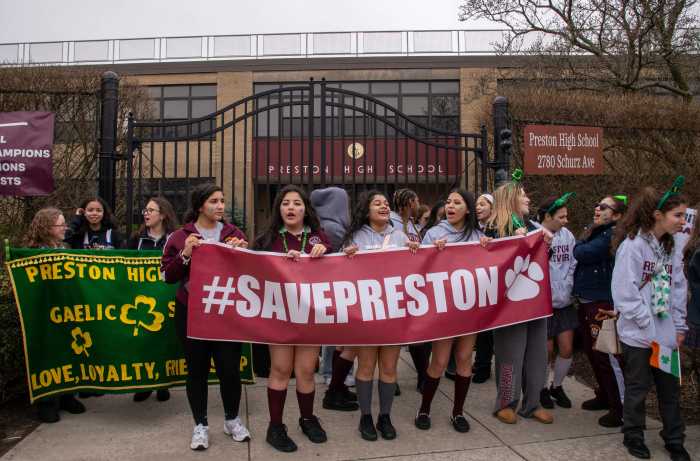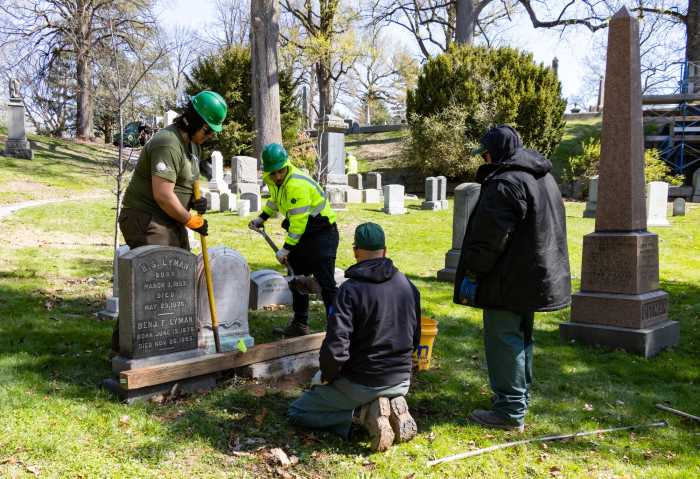State leaders are questioning the MTA on how it plans to modernize the transit system in its $51.5 billion five-year capital plan.
Tuesday’s joint hearing between the MTA and members of the state Senate and Assembly was filled with equal parts cynicism and frustration, with much of the angst focused on the lack of ADA-accessible subway stations and the authority’s plans to service debts from bonds.
MTA Chairman Pat Foye said $3.5 billion would go to new signal systems which have shown to increase service and on-time performance for the 7 train earlier this year. The massive investment would also have the potential to create 350,000 new jobs, according to the chair. About $15 billion will contribute to congesting pricing, tolls on cars entering Manhattan below 60th Street.
State Senator Gustavo Rivera needed extra reassurance that the 22 subway stations in his northwest Bronx district would see ADA accessibility. Chief Development Officer Janno Lieber stated that one of the top priorities in the capital plan would include installing elevators. Those plans are already in the works, but the agency was already “bundling” the work for when the funds come through, Lieber said.
“We are preparing for the moment when the [MTA Capital Program Review Board] approves the capital plan that we will be able to move substantial chunks of the capital plan into procurement,” he said. “That includes 15 to 20 stations bundled together – ADA stations. “Customization is the enemy of budget and schedule combined.”
A more detailed update on the preliminary sequence of ADA accessibility will be available once the CPRB approves the capital plan.
Foye said the 500 new transit police officers ordered by Governor Andrew Cuomo — a controversial plan decried by transit advocates as a waste of resources amid falling crime rates — will be included in the capital plan.
The MTA will use $5.7 billion on Long Island Road Road improvements such as the third track between Floral Park and Hicksville as well as East Side Access, expanding LIRR service through a new terminal in Grand Central.
While the funding for the capital plan has already been approved in the budget, it has not granted to the agency, which also has $2.7 billion in annual debt. The MTA must pay back $9.7 billion by 2032 for the capital program alone.
Senator John Liu asked Foye and two other high-ranking leaders was how the agency could fathom issuing interest-only bonds without having the funds to back them up, let alone considering the $1.8 billion deficit forecasted by 2023.
“Are you saying that you’re not going to actually deal with … $10 billion of MTA bonds until 2032?” state Senator Liu asked.
“We basically will create a troth, if you will, we will refund certain amounts of debt to give us the ability to sell bonds with interest only during the latter 20s and then have principle that matures after that,” Chief Financial Officer Robert Foran responded. “We’re not talking about refunding this debt until probably 2025.”



